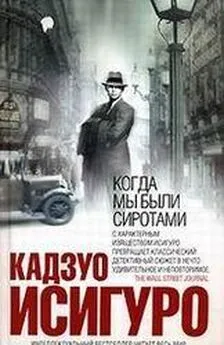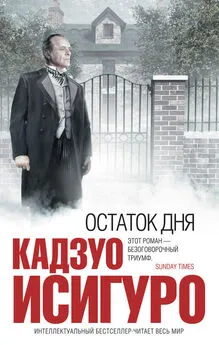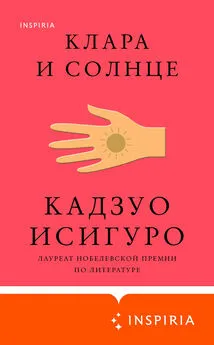Кадзуо Исигуро - Остаток дня / The Remains of the Day
- Название:Остаток дня / The Remains of the Day
- Автор:
- Жанр:
- Издательство:неизвестно
- Год:2020
- Город:Москва
- ISBN:978-5-04-112761-9
- Рейтинг:
- Избранное:Добавить в избранное
-
Отзывы:
-
Ваша оценка:
Кадзуо Исигуро - Остаток дня / The Remains of the Day краткое содержание
«Остаток дня» – дневник дворецкого, жизнь с точки зрения Бэрримора. В основе его стилистики лежит сдержанность, выявляющая себя в самой механике речи. Герой не считает возможным проявлять свои чувства, и на лингвистическом уровне эта своеобразная аскеза приводит к замечательным результатам – перед нами этакая оборотная сторона Достоевского с его неуправляемым потоком эмоций.
В 1989 году за «Остаток дня» Исигуро единогласно получил Букера (и это было, пожалуй, единственное решение Букеровского комитета за всю историю премии, ни у кого не вызвавшее протеста). Одноименная экранизация Джеймса Айвори с Энтони Хопкинсом в главной роли пользовалась большим успехом.
А Борис Акунин написал своего рода римейк «Остатка дня» – роман «Коронация».
В формате a4-pdf сохранен издательский макет книги.
Остаток дня / The Remains of the Day - читать онлайн бесплатно ознакомительный отрывок
Интервал:
Закладка:
On that occasion, too, my father was sleeping when I entered. But the chambermaid Miss Kenton had left in attendance stood up upon seeing me and began to shake my father’s shoulder.
‘Foolish girl!’ I exclaimed. ‘What do you think you are doing?’
‘Mr Stevens said to wake him if you returned, sir.’
‘Let him sleep. It’s exhaustion that’s made him ill.’
‘He said I had to, sir,’ the girl said, and again shook my father’s shoulder.
My father opened his eyes, turned his head a little on the pillow, and looked at me.
‘I hope Father is feeling better now,’ I said.
He went on gazing at me for a moment, then asked:
‘Everything in hand downstairs?’
The situation is rather volatile. It is just after six o’clock, so Father can well imagine the atmosphere in the kitchen at this moment.’
An impatient look crossed my father’s face.
‘But is everything in hand?’ he said again.
‘Yes, I dare say you can rest assured on that. I’m very glad Father is feeling better.’
With some deliberation, he withdrew his arms from under the bedclothes and gazed tiredly at the backs of his hands. He continued to do this for some time.
‘I’m glad Father is feeling so much better,’ I said again eventually. ‘Now really, I’d best be getting back. As I say, the situation is rather volatile.’
He went on looking at his hands for a moment. Then he said slowly:
‘I hope I’ve been a good father to you.’
I laughed a little and said:
‘I’m so glad you’re feeling better now.’
‘I’m proud of you. A good son. I hope I’ve been a good father to you. I suppose I haven’t.’
‘I’m afraid we’re extremely busy now, but we can talk again in the morning.’
My father was still looking at his hands as though he were faintly irritated by them.
‘I’m so glad you’re feeling better now,’ I said again and took my leave.
On descending, I found the kitchen on the brink of pandemonium, and in general, an extremely tense atmosphere amongst all levels of staff. However, I am pleased to recall that by the time dinner was served an hour or so later, nothing but efficiency and professional calm was exhibited on the part of my team.
It is always something of a memorable sight to see that magnificent banqueting hall employed to its full capacity and that evening was no exception. Of course, the effect produced by unbroken lines of gentlemen in evening suits, so outnumbering representatives of the fairer sex, was a rather severe one; but then again, in those days, the two large chandeliers that hang over the table still ran on gas – resulting in a subtle, quite soft light pervading the room – and did not produce the dazzling brightness they have done ever since their electrification. On that second and final dinner of the conference – most guests were expected to disperse after lunch the following day – the company had lost much of the reserve that had been noticeable throughout the previous days. Not only was the conversation flowing more freely and loudly, we found ourselves serving out wine at a conspicuously increased rate. At the close of dinner, which from a professional viewpoint had been executed without any significant difficulties, his lordship rose to address his guests.
He opened by expressing his gratitude to all present that the discussions during the previous two days, ‘though at times exhilaratingly frank’, had been conducted in a spirit of friendship and the desire to see good prevail. The unity witnessed over the two days had been greater than he could ever have hoped for, and the remaining morning’s session of ‘rounding up’ would, he trusted, be rich in commitments on the part of participants concerning action each would be taking before the important international conference in Switzerland. It was around this point – and I have no idea if he had planned to do so beforehand – that his lordship began to reminisce about his late friend, Herr Karl-Heinz Bremann. This was a little unfortunate, the topic being one close to his lordship’s heart and one he was inclined to explicate at some length. It should also be said, perhaps, that Lord Darlington was never what might be called a natural public speaker, and soon all those small sounds of restlessness that betray that an audience’s attention has been lost grew steadily around the room. Indeed, by the time Lord Darlington had finally come round to bidding his guests rise and drink to ‘peace and justice in Europe’, the level of such noises – perhaps on account of the liberal amounts of wine that had been consumed – struck me as bordering on the ill-mannered.
The company had seated themselves again, and conversation was just beginning to resume, when there came an authoritative rapping of knuckles upon wood and M. Dupont had risen to his feet. At once, a hush fell over the room. The distinguished gentleman glanced around the table with a look almost of severity. Then he said:
‘I hope I am not trespassing over a duty ascribed to someone else present here, but then I had heard no proposals for anyone to give a toast in thanks to our host, the most honourable and kind Lord Darlington.’
There was a murmur of approval. M. Dupont went on:
‘Many things of interest have been said in this house over the past days. Many important things.’
He paused, and there was now utter stillness in the room.
‘There has been much,’ he continued, ‘which has implicitly or otherwise criticized – it is not so strong a word – criticized the foreign policy of my country.’ He paused again, looking rather stern. One might even have thought him to be angry. ‘We have heard in these two days several thorough and intelligent analyses of the present very complex situation in Europe. But none of them, may I say, has fully comprehended the reasons for the attitude France has adopted towards her neighbour. However’ – he raised a finger – ‘this is not the time to enter into such debates.
In fact, I deliberately refrained from entering into such debates during these past days because I came principally to listen. And let me say now that I have been impressed by certain of the arguments I have heard here. But how impressed, you may be asking.’ M. Dupont took another pause during which his gaze travelled in an almost leisurely manner around all the faces fixed upon him. Then at last he said: ‘Gentlemen – and ladies, pardon me – I have given much thought to these matters and I wish to say here in confidence to you, that while there remain between myself and many of those present differences of interpretation as to what is really occurring in Europe at this moment, despite this, as to the main points that have been raised in this house, I am convinced, gentlemen, convinced both of their justice and their practicality.’
A murmur which seemed to contain both relief and triumph went around the table, but this time M. Dupont raised his voice slightly and pronounced over it:
‘I am happy to assure you all here that I will bring what modest influence I have to encourage certain changes of emphasis in French policy in accordance with much of what has been said here. And I will endeavour to do so in good time for the Swiss conference.’
There was a ripple of applause, and I saw his lordship exchange a look with Sir David. M. Dupont held up his hand, though whether to acknowledge the applause or to stem it was not clear.
‘But before I go on to thank our host, Lord Darlington, I have some small thing I would wish to remove from my chest. Some of you may say it is not good manners to be removing such things from one’s chest at the dinner table.’ This brought enthusiastic laughter. ‘However, I am for frankness in these matters. Just as there is an imperative to express gratitude formally and publicly to Lord Darlington, who has brought us here and made possible this present spirit of unity and goodwill, there is, I believe, an imperative to openly condemn any who come here to abuse the hospitality of the host, and to spend his energies solely in trying to sow discontent and suspicion. Such persons are not only socially repugnant, in the climate of our present day they are extremely dangerous.’
He paused again and once more there was utter stillness. M. Dupont went on in a calm, deliberate voice:
‘My only question concerning Mr Lewis is this. To what extent does his abominable behaviour exemplify the attitude of the present American administration? Ladies and gentlemen, let me myself hazard a guess as to the answer, for such a gentleman capable of the levels of deceit he has displayed over these past days should not be relied upon to provide a truthful reply. So, I will hazard my guess. Of course, America is concerned about our debt payments to her in the event of a freeze in German reparations. But I have over the last six months had occasion to discuss this very matter with a number of very highly placed Americans, and it seems to me that thinking in that country is much more far-sighted than that represented by their countryman here. All those of us who care for the future well-being of Europe will take comfort from the fact that Mr Lewis is now – how shall we put it? – hardly the influence he once was. Perhaps you think me unduly harsh to express these things so openly. But the reality is, ladies and gentlemen, I am being merciful. You see, I refrain from outlining just what this gentleman has been saying to me – about you all. And with a most clumsy technique, the audacity and crudeness of which I could hardly believe. But enough of condemnations. It is time for us to thank. Join me then, please, ladies and gentlemen, in raising your glasses to Lord Darlington.’
M. Dupont had not once looked over in Mr Lewis’s direction during the course of this speech, and indeed, once the company had toasted his lordship and were seated again, all those present seemed to be studiously avoiding looking towards the American gentleman. An uneasy silence reigned for a moment, and then finally Mr Lewis rose to his feet. He was smiling pleasantly in his customary manner.
‘Well, since everyone’s giving speeches, I may as well take a turn,’ he said, and it was at once apparent from his voice that he had had a good deal to drink. ‘I don’t have anything to say to the nonsense our French friend has been uttering. I just dismiss that sort of talk. I’ve had people try to put one over on me many times, and let me tell you, gentlemen, few people succeed. Few people succeed.’ Mr Lewis came to a halt and for a moment seemed at a loss as to how he should go on. Eventually he smiled again and said: ‘As I say, I’m not going to waste my time on our French friend over there. But as it happens, I do have something to say. Now we’re all being so frank, I’ll be frank too. You gentlemen here, forgive me, but you are just a bunch of naïve dreamers. And if you didn’t insist on meddling in large affairs that affect the globe, you would actually be charming. Let’s take our good host here. What is he? He is a gentleman. No one here, I trust, would care to disagree. A classic English gentleman. Decent, honest, well-meaning. But his lordship here is an amateur.’ He paused at the word and looked around the table. ‘He is an amateur and international affairs today are no longer for gentlemen amateurs. The sooner you here in Europe realize that the better. All you decent, well-meaning gentlemen, let me ask you, have you any idea what sort of place the world is becoming all around you? The days when you could act out of your noble instincts are over. Except of course, you here in Europe don’t yet seem to know it. Gentlemen like our good host still believe it’s their business to meddle in matters they don’t understand. So much hog-wash has been spoken here these past two days. Well-meaning, naïve hog-wash. You here in Europe need professionals to run your affairs. If you don’t realize that soon you’re headed for disaster. A toast, gentlemen. Let me make a toast. To professionalism.’
Читать дальшеИнтервал:
Закладка:
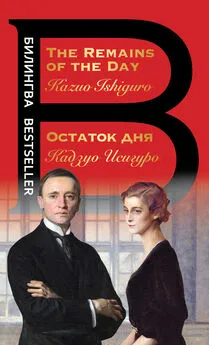
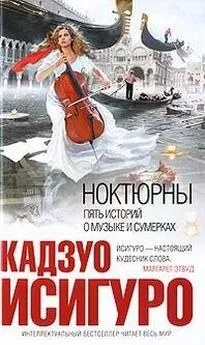

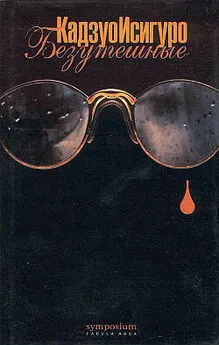
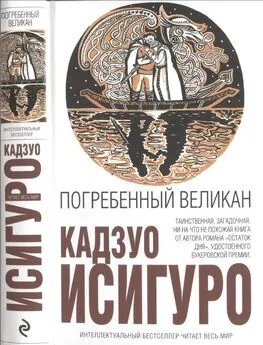
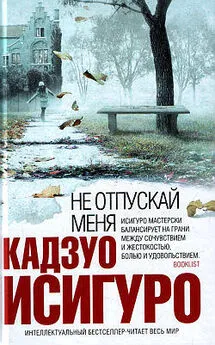
![Кадзуо Исигуро - Не отпускай меня [litres]](/books/1095846/kadzuo-isiguro-ne-otpuskaj-menya-litres.webp)
